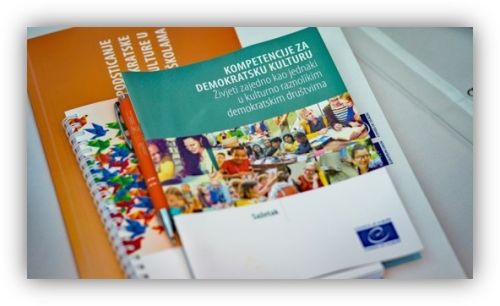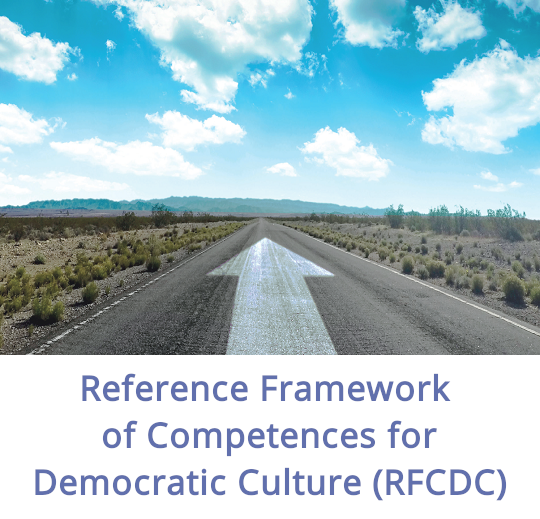Co-operation and Capacity Building
Co-operation and capacity building
The Council of Europe Education Department develops and promotes education policies and good practices aiming at strengthening the education systems of states party to the European Cultural Convention.

Projects and activities are implemented within several frameworks, including the Council of Europe ordinary budget, joint programmes with the European Union, voluntary contributions and the EEA/Norway grants.
Implementation of the RFCDC through projects
During the first phase of the European Union/Council of Europe Horizontal Facility for the Western Balkans and Türkiye, the Actions on the Education in Montenegro, Serbia and Kosovo* were implemented. The Actions aimed at improving the quality of education in the beneficiaries by fostering the development of a democratic school culture and included the piloting and implementation of the Model of CDC. Under the third phase of the European Union/Council of Europe Horizontal Facility for Western Balkans and Türkiye, Joint EU/CoE Projects ‘Quality Education for all’ are currently being implemented in Bosnia and Herzegovina, Montenegro and Serbia.
The project “Education for Democracy in the Republic of Moldova II” is promoting the integration of the RFCDC in school curricula, teacher education, teaching practices and school governance. The aim of the project is to help strengthening the capacity of the Moldovan education system to support the development of the knowledge and competences necessary for someone to become an engaged citizen.
Previous projects
The project “Promoting Human Rights and Democratic Citizenship in 6 Eastern partnership countries” (Armenia, Azerbaijan, Belarus, Georgia, Republic of Moldova and Ukraine) funded under the first phase of the European Union/Council of Europe Partnership for Good Governance promoted the practical implementation of the Council of Europe Charter on Education for Democratic Citizenship and Human Rights Education (EDC/HRE) and the piloting and implementation of the Model of CDC in the participating countries.
In Türkiye, the European Union/Council of Europe Joint Project “Strengthening Democratic Culture in Basic Education” implemented the RFCDC. The project aims at fostering democratic school culture in the Turkish national education system.
Implementation of the competences for Democratic Culture was one of the priorities of the European Union/Council of Europe Joint Programme DISCO, which was organised through calls for projects.
*This designation is without prejudice to positions on status, and is in line with UNSCR 1244 and the ICJ Opinion on the Kosovo Declaration of Independence.

Documentary “The Competences we need”
The projects implemented during the 4th cycle of the Programme DISCO are mentioned in the video.
"What does it take to build a democratic culture?"
A video on the impact and results of the Horizontal Facility Actions on Education in the Western Balkans
"What did we achieve?"
A video about the results achieved by the project: "Promoting Human Rights and Democratic Citizenship Education in 6 Eastern partnership countries".


